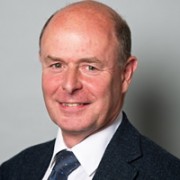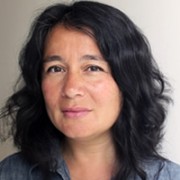Why is the BBC so uninterested in religion?
In this blog, the Sandford St Martin trustee, Torin Douglas reflects on the BBC’s Christmas scheduling and, in the run up to BBC Charter renewal in 2016, asks pertinent questions about what the BBC’s strategy for religion. A shorter version of this blog appeared in the Huffington Post UK.
As the Huffington Post reported this week, the BBC is under fire for the lack of original religious programming on TV this Christmas.
“BBC accused of ‘diminishing religion’ blared the headline in the Daily Express – “Only FOUR HOURS of Christian programming over Xmas”.
The paper went on: “In total, just eight hours of Christian-themed television, such as traditional carols and religious messages, is being aired over seven days, including Christmas Eve and Christmas Day. This is less than three per cent of the total and four hours of this are repeats. “
It said: “The shows include Midnight Mass, Carols From Kings, On Angel Wings by Michael Morpurgo but also two repeats, Westminster Abbey and David Suchet’s In The Footsteps Of St Paul. “
In fact that was over-generous to the BBC. The paper hadn’t spotted that ‘On Angel Wings’ was also a repeat from last Christmas.
The BBC’s religious output on TV has shrunk considerably from a decade ago, according to Mail Online: “In 2005 the broadcaster aired eight hours of Christian programming on Christmas Eve and Christmas Day alone, the same total that is scheduled over a seven-day period this year.”
BBC TV’s lack of interest in religious broadcasting – even at Christmas – doesn’t surprise me. I’m a member of the Sandford St Martin Trust, which promotes excellence in broadcasting that engages with religion of all faiths, ethics and morality.
In our recent submission to the BBC Trust on the review of the BBC Charter, we took the Corporation to task for its failure to take seriously – or even understand – its obligations in this area, at a time when it is widely acknowledged that religious literacy has never been more important.
We quoted, among others, the historian Simon Schama, who wrote: “My generation grew up thinking that religion was completely marginal to British life, which, as for the rest of the world, has been proved more and more wrong…”
Professor Schama is one of many distinguished programme-makers who have won a Sandford St Martin Trust award for the best broadcast programmes about religion, ethics and spirituality. He was a double award-winner in 2014 for The Story of the Jews on BBC Two.
And despite the apparent lack of understanding among many at the top of the Corporation, there are still some very fine programmes being made at the BBC, as our awards acknowledge.
Earlier this year we gave our Trustees Award to Lyse Doucet, the BBC’s chief international correspondent, for raising the profile of religion and the media. In her acceptance speech at Lambeth Palace, she spelled out exactly why religious understanding is now so important in coverage of world affairs.
In our submission to the BBC Trust, we urged the BBC management to take more notice of its own expert programme-makers like these.
In its July 2015 report, ‘Public Service Broadcasting in the Internet Age’, Ofcom identified religious programming as one of the “immediate areas of concern”. This finding is recognised and is even quoted in the BBC’s own report, ‘British Bold Creative: The BBC’s programmes and services in the next Charter’ which reports on “the immediate issue” relating to
“…news consumption and the provision of news for young people, drama that reflects and portrays British society back to a British audience, content tailored to the specific needs of the UK Nations and their regions, religious programming, children’s programming and investment in other areas such as music and arts.” (emphasis ours)
The BBC goes on to declare on page 49 on that same report that: “We have designed our proposals to address these needs.”
That is the last and the only time religious programming is referred to anywhere in the entire 99 page document. In fact, religious programming is the only genre on Ofcom’s list of “immediate areas of concern” which the BBC neglects to consider, mention or even name-check in its proposals for the next Charter period.
In the Sandford St Martin Trust’s response to the BBC’s report we wrote “The complete absence of any proposals, or creative thinking, relating to this area in its document British Bold Creative does not give us any confidence that the BBC or the BBC Trust recognises its importance.”
The BBC has always held the prime responsibility to provide high-quality religious programming on television and radio in the UK. It is specified in the BBC Charter. At the Sandford St Martin Trust, we believe that this obligation is now even more important because of
(a) the need for greater understanding of religious issues, to deliver proper coverage of world affairs and community issues in the UK, and
(b) the clear market failure in religious programming on commercial channels as a result of the relaxation of the Public Service Broadcasting regime.
In our submission to the BBC Trust, we said: “The Trust believes that the withdrawal of the commercial TV channels from a core element of public service broadcasting increases the BBC’s obligation to provide such coverage; to make good the deficiency as far as possible; and certainly not to reduce its own religious programming output.”
We sent copies of our submission to the Secretary of State for Culture Media & Sport and the two parliamentary committees reviewing the BBC Charter.
We identified other areas of concern in the BBC’s attitude to religious broadcasting, including the effective downgrading of the post of BBC head of religion as a result of budgetary cuts (paragraph 48). BBC TV’s Factual Commissioning division announced in January 2015 plans to merge the role of Commissioning Head of Religion with those of Science, Business and History.
We were not reassured by the short responses that our chair, the Bishop of Leeds Nick Baines, received to our letters to the BBC and BBC Trust expressing concern at this decision. We noted that they had no answer to our question: “Who will take overall responsibility in the BBC for the range, quantity and quality of religious programming?”
We also fear that future cuts outlined in the BBC Charter Review document of September 2015 will put further strain on the BBC’s religious output (paragraph 52). In particular, we are seeking assurances that the proposal to set up a new BBC Studios production centre will not reduce the level of knowledge and expertise in the BBC’s Religion and Ethics department.
There is already seems a lack of expertise among some of those who commission TV programmes about religion and ethics at the BBC. In a recent video aimed at programme-makers which claims to explain the BBC’s Religion strategy for BBC One, religion isn’t even mentioned until 25 seconds from the end!
You can review the BBC’s religious programme schedule for Christmas 2015 here.
And you can read Justin Welby, the Archbishop of Canterbury’s article about how religious broadcasting is not just for Christmas or Easter here.



